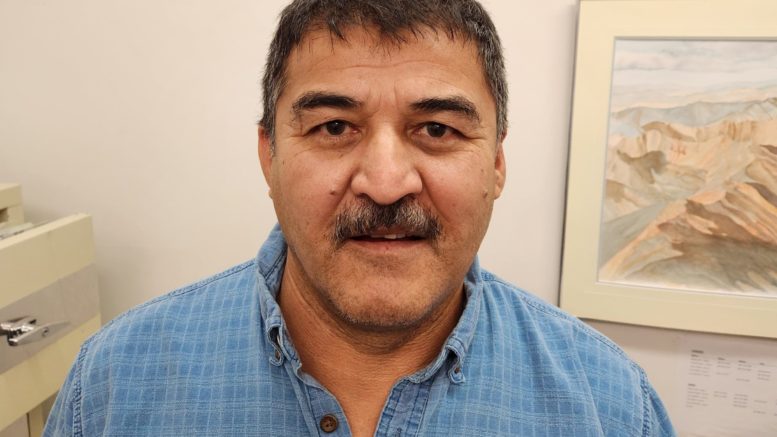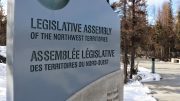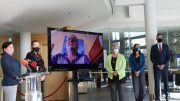Ken Kyikavichik says the past few years have been challenging for his people.
“The amount of grief that’s gone on, especially over the last two years, has been exceptional,” the Gwich’in Grand Chief says.
This year’s spike in suicides hit the communities of the Beaufort Delta the hardest: There were eighteen suicides in the first ten months of 2022, nearly double the number from all of 2021 and the highest number in at least 20 years.
Of these 18 suicides, seven were in the Beaufort-Delta region, compared to just one last year.
Both Grand Chief Kyikavichik and Gwichya Gwich’in Chief Philip Blake identified a common theme in their communities’ mental health struggles: isolation and the fraying of community fabrics, worsened by the Covid-19 pandemic.
“We’re social people who will mingle amongst one another,” says Chief Blake. “We’re not used to being isolated to our own homes, in my community.”
The pandemic also brought recreational activities to a halt. “Many of our gymnasiums were shut down,” says Kyikavichik. “So a lot of the physical activity just came to a halt. We have communities in the Gwich’in Settlement Area that have been without things such as hockey rinks for a number of years.”
Last month, the Legislative Assembly adopted a motion, introduced by Kam Lake MLA Caitlin Cleveland, calling on the GNWT to allocate $250,000 in new suicide prevention funding for each region of the territory. The motion also calls on the territory to establish an anti-suicide task force to work with communities in crisis, and promote recreational activities, particularly for youth and small communities.
Chief Blake worries the funding won’t be enough for his community of about 170 to afford a counsellor. “We don’t have any resources for counselling,” he says. “Other larger communities probably have that, but we don’t.”
Kyikavichik echoes the need for qualified professionals in isolated communities: “The money is one thing, but having the people and the qualified care at the local community is what’s important,” he says.
As for the promotion of recreational activities, Kyikavichik says he has seen the benefit this can bring a community: The weekend before Halloween, the community of Fort McPherson hosted a series of road hockey tournaments, complete with donations from local organizations. “They were just able to give the communities a healthy break from the monotony living in the north, and the daily routine,” says Kyikavichik.
Despite the challenges they face, Kyikavichik says, “the people of the Mackenzie Delta are very resilient.”
He encourages the members of his communities to reach out to their loved ones, even if it means having difficult conversations. “My underlying message is, try to be kind and try to be helpful, as much as you can,” he says. “It’s actions, not words that will actually help us get to where we need to go in terms of improving our overall mental health and wellness.”
Cleveland did not respond to a request for comment.
With files from Mariah Caruso.









